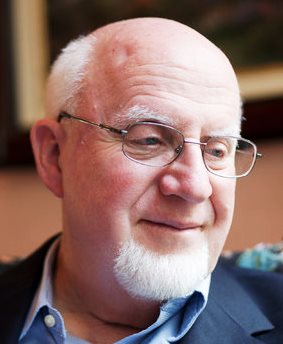
HEAR MOODY AND SANKEY — Dwight L. Moody was the “Billy Graham” of the 19th century and an important figure in the history of evangelistic methods and organization. So far as is known, only one brief recording of his voice survives — in which the evangelist reads the Beatitudes. Moody’s singer was Ira D. Sankey, whose hymns are still found throughout many Christian hymnals. Moody Bible Institute also houses recordings of Sankey singing.
For resources on both men, go to: library.moody.edu/archives/audio-library/
HERE FOR OTHERS — In his feedback to the most recent gracEmail, subscriber Jay Altieri reflects on some very natural reasons for Christians to come together to worship God as well as worshipping him privately anywhere and any time. Following are Jay’s observations to me, slightly edited for gracEmail.
“Worship is an attitude and lifestyle that extends far beyond the walls of any church edifice. technically a believer is not required to participate in any ‘formal’ worship. But this is a situation where, for most people, technicality and real-life application diverge. Worship is very often a group thing. A new level of worship can be attained in a communal environment that is impossible in isolation.
“Humans are by nature a gregarious, herd-forming, community-based creature. Worship includes serving God, doing good deeds, helping others. How can we be a ministering tool for others in isolation?
“To efficiently grow as believers, we need fellowship, pastoring, mentoring, and such things from and with other believers. Pastoring and mentoring are not always for our own personal growth. Just as frequently, they are for someone else’s benefit and we are supposed to be doing the mentoring. After all, we are here to help other people. So why forsake fellowship and group worship?”
FIVE DAVIDS RECOMMEND — In Hebrews: Ancient Encouragement for Believers Today, I show how the author of Hebrews uses four Psalms as a framework to re-tell the story of Jesus to a disheartened audience that was tempted to turn from Christ and walk away. The same structure and intense focus on Jesus permeates and empowers this narrative commentary, bringing fresh encouragement to believers today. The book has 36 endorsements from around the world and across the body of Christ, including the following.
DAVID B. CAPES (Houston Baptist University) — “Despite the great cloud of unknowns swirling about the book of Hebrews, Edward Fudge masterfully distills modern scholarly discussions into readable, elegant prose, putting top-shelf scholarship at eye-level, making it available to all. Saturated in covenant language and adept in biblical and non-biblical sources, Fudge is uniquely qualified to help his readers appreciate the rhetoric, heed the warnings and follow in the steps of the true saints.”
DAVID FLEER (Lipscomb University) — “Edward Fudge promises reverent scholarship written for serious Bible students in non-technical terms. He holds true to his promise on every page. This book should be within arm’s reach for every preacher, elder, Bible class teacher and student.”
DAVID BARTLETT (Yale Divinity School) — “The Epistle to the Hebrews provides one of the most original theological perspectives in the New Testament, and one of the least accessible. Edward Fudge goes a very long way toward aiding its accessibility. Through his study of the text, his attention to the long history of interpretation of this writing and his own wise pastoral applications, Fudge has written a guide to Hebrews that I am happy to commend to students and pastors alike.”
DAVID L. EUBANKS (Johnson University) — “This is one of the finest works on Hebrews that I have read. Fudge writes with a clear focus, steers clear of tangents, and captures the spirit of the letter. Demonstrating extensive research and sound scholarship, he writes for both the ordinary and the more accomplished student of Hebrews.”
DAVID F. WATSON (United Theological Seminary) — “This work is informed by scholarly research but communicates clearly to the non-specialist. Laity and clergy alike will find it to be an accessible and informative guide through the rich and complex message of Hebrews.”
Learn all about Hebrews: Ancient Encouragement for Believers Today at: edwardfudge.com/written-ministry/